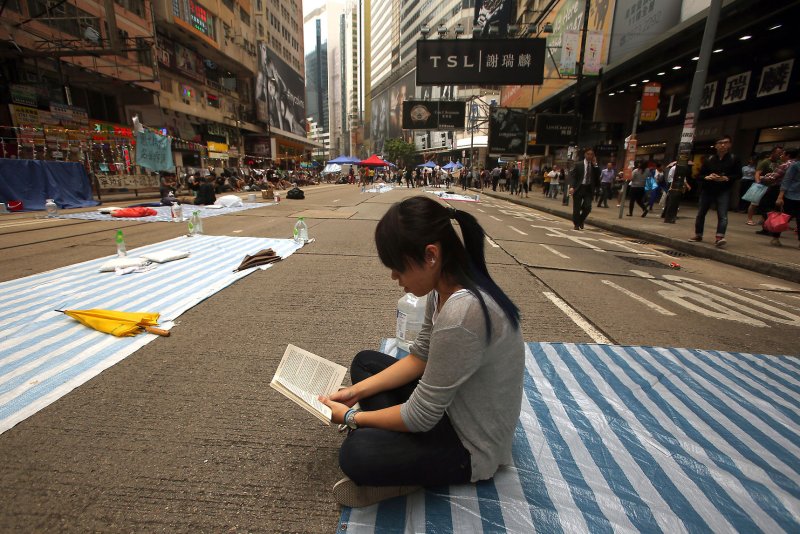HONG KONG, Nov. 11 (UPI) -- Six weeks after hundreds of thousands of protesters took to the streets of Hong Kong to advocate for democracy, the movement appears to have reached an impasse.
Law professor Benny Tai, who conceived the protest and has served as an adviser to the student protest leaders, told the Washington Post that he intended the protest to be a brief demonstration of civil disobedience.















